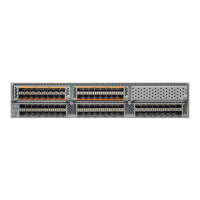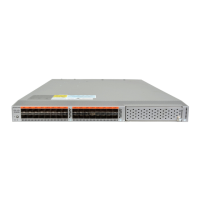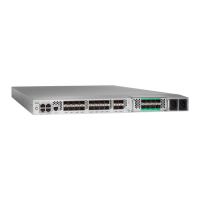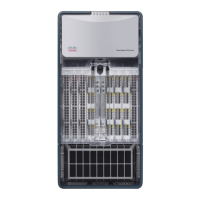162
Cisco Nexus 5500 Series NX-OS Security Command Reference
OL-27883-02
Chapter P Commands
permit igmp (IPv4)
permit igmp (IPv4)
To create an access control list (ACL) rule that permits IPv4 IGMP traffic matching its conditions, use
the permit command. To remove a rule, use the no form of this command.
[sequence-number] permit igmp source destination [igmp-message | dscp dscp | fragments | log |
precedence precedence]
no permit igmp source destination [igmp-message | dscp dscp | fragments | log | precedence
precedence]
no sequence-number
Note You can also specify the igmp keyword by its protocol number. Valid numbers are from 0 to 255.
Syntax Description sequence-number (Optional) Sequence number of the permit command, which causes the
switch to insert the command in that numbered position in the access list.
Sequence numbers maintain the order of rules within an ACL.
A sequence number can be any integer between 1 and 4294967295.
By default, the first rule in an ACL has a sequence number of 10.
If you do not specify a sequence number, the switch adds the rule to the end
of the ACL and assigns to it a sequence number that is 10 greater than the
sequence number of the preceding rule.
Use the resequence command to reassign sequence numbers to rules.
igmp Specifies that the rule applies to IGMP traffic only. When you use this
keyword, the igmp-message argument is available.
source Source IPv4 addresses that the rule matches. For details about the methods
that you can use to specify this argument, see the “Source and Destination”
section in the “Usage Guidelines” section.
destination Destination IPv4 addresses that the rule matches. For details about the
methods that you can use to specify this argument, see the “Source and
Destination” in the “Usage Guidelines” section.
igmp-message (Optional) Rule that matches only packets of the specified IGMP message
type. The igmp-message argument can be the IGMP message number, which
is an integer from 0 to 15. It can also be one of the following keywords:
• dvmrp—Distance Vector Multicast Routing Protocol
• host-query—Host query
• host-report—Host report
• log—Log matches against this entry
• pim—Protocol Independent Multicast
• trace—Multicast trace

